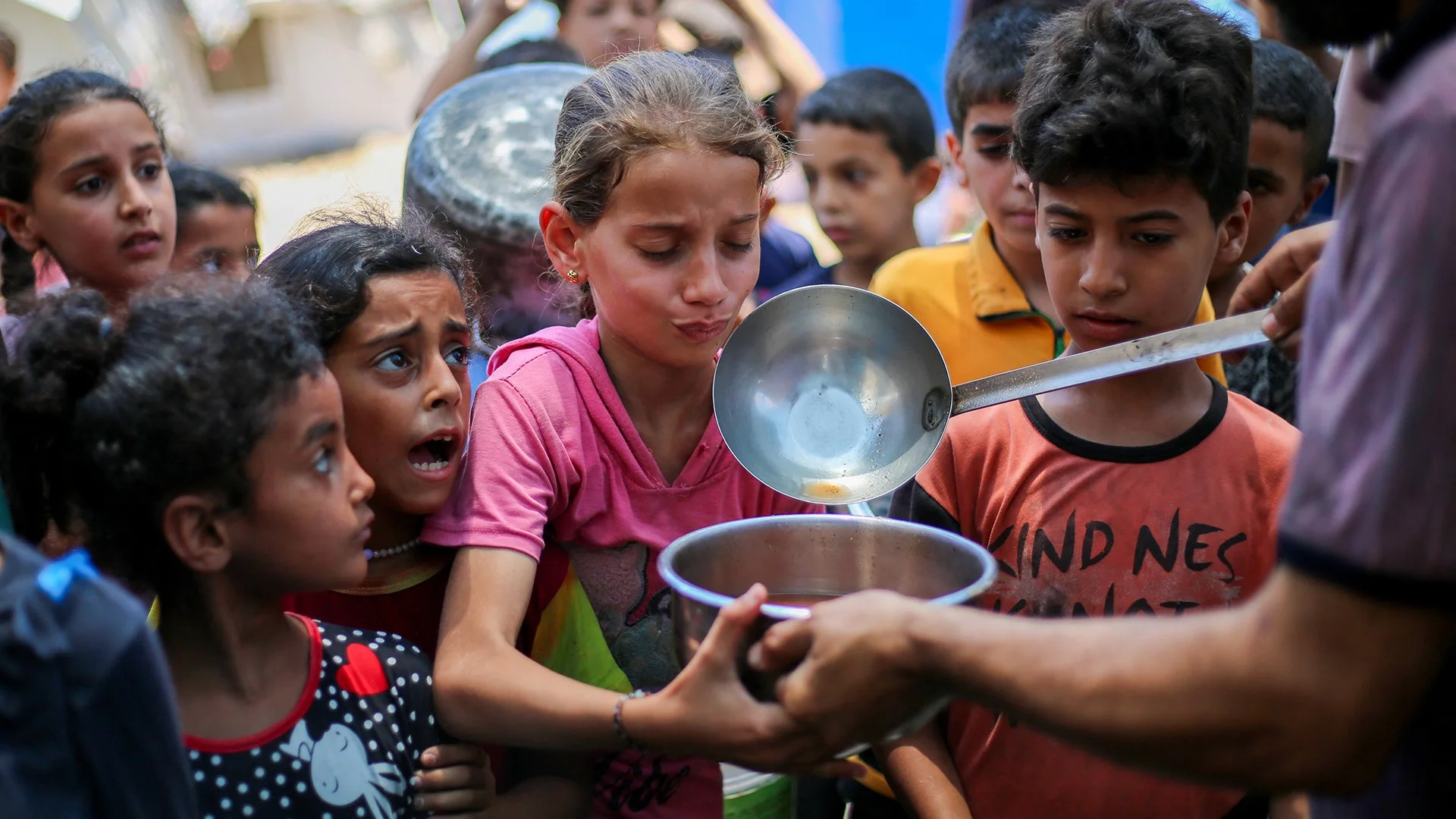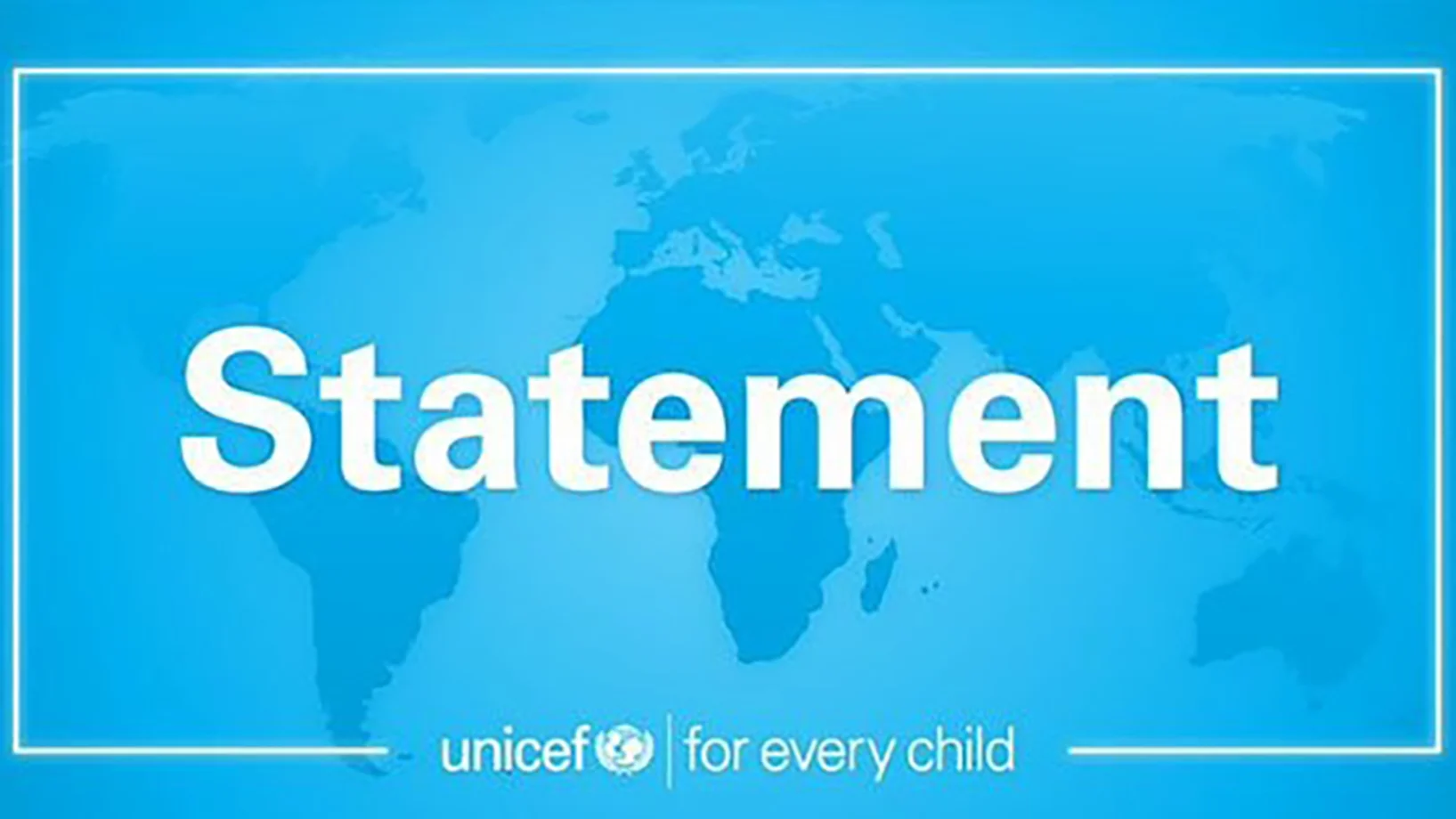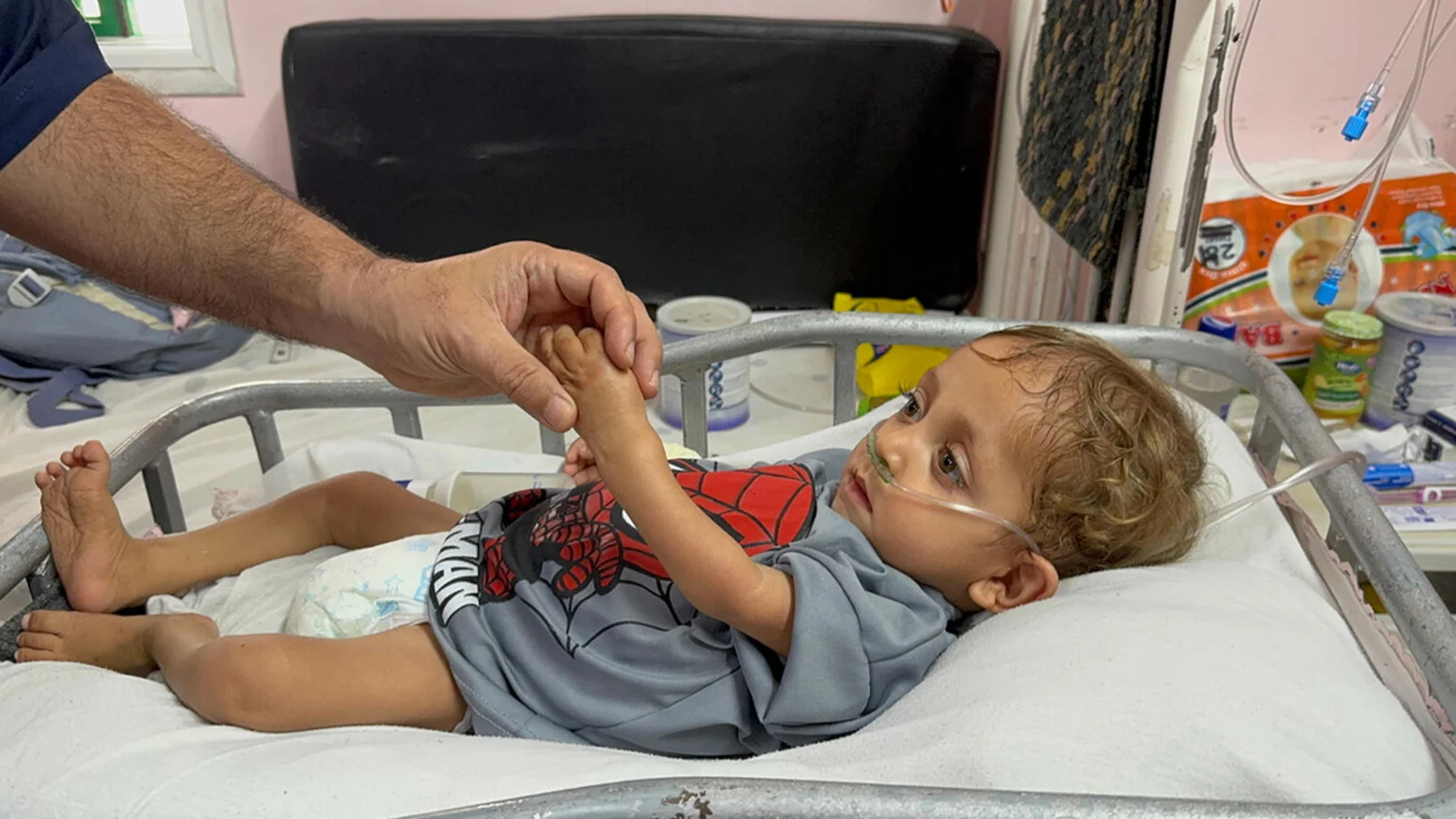After more than eighteen months of war, almost everything is in short supply in the Gaza Strip. There is no end in sight to the violence. The biggest victims are the children. Childhood needs peace. Every day, UNICEF is doing everything it can to secure it.
The situation
There has been war in Gaza since the devastating terror attacks on Israel by Hamas on October 7, 2023. The children, who bear no responsibility, are paying the highest price for the ongoing violence. According to the Palestinian Ministry of Health, more than 15,000 children have been killed, more than 34,000 wounded and almost one million children displaced several times since the beginning of the war in Gaza. A total of 3.3 million people, including 1.7 million children, are dependent on humanitarian aid, but their access to basic supply services is largely blocked. Many houses, hospitals and schools have been reduced to rubble. There is a shortage of food, safe water and medical care.
How your donation helps
Even though the blockade means that very little or even no emergency supplies can reach Gaza at present, your donation is more important than ever. This will allow UNICEF to continue providing lifesaving services in the Gaza Strip.
Together with partners, UNICEF’s employees in Gaza are:
Water
Malnutrition
Reunion
Vaccinations
Learning initiatives
Cash transfers
UNICEF was present in Gaza before and during the war – and will stay there, helping the people of Gaza.
FAQs about the war in Gaza
UNICEF procures emergency supplies such as safe water, vaccines, medical supplies, sanitation kits and ready-to-use therapeutic food for malnourished children. UNICEF also delivers generators, fuel, mobile toilets, tarpaulins, tents, clothing and blankets. These are taken to Gaza by truck where they are distributed.
During the 42-day ceasefire, UNICEF managed to take and store around 40,000 tonnes of emergency supplies to the Gaza Strip. These supplies were almost completely exhausted during the 11-week blockade when no further humanitarian aid could be delivered. Limited emergency supplies are now being authorized entry to Gaza again.
The donations are also used for humanitarian cash transfers, to pay the salaries of the employees in Gaza and to finance local programs. It is absolutely essential to maintain these lifesaving services,
including identifying and treating malnourished children at an early stage, securing the supply of safe water using desalination plants and providing psychosocial support to traumatized children.
UNICEF remains present in the Gaza Strip – with national and international staff who work tirelessly to support children and families in dire need. Together with partner organizations we provide assistance in extremely difficult conditions.
In spite of the current limited access we make use of every available time window and every opportunity to take lifesaving supplies to Gaza, while at the same time preparing comprehensive relief measures that can be activated immediately once access improves.
Malnutrition cannot be overcome solely by delivering food: children who are starving often do not die of hunger itself, but from simple infections or diseases that their weakened immune system can no longer fight – because they do not have access to medical care, safe drinking water, adequate sanitary facilities and a safe environment. The survival of these children can only be ensured through a coordinated, cross-sectoral approach providing access to food, healthcare, water and sanitation measures (WASH).
Your donation helps directly: it enables our staff to be deployed, supports local collaboration, warehousing, logistics – and makes sure that vital aid will be available as soon as we can bring it to the children.
UNICEF has been condemning the awful attacks on Israel and the consequences for children and their families since October 7, 2023. Every child must be protected against violence. UNICEF demands that all hostages still held in Gaza immediately be freed unconditionally and returned to their families. The children in the region need a permanent ceasefire. Access to humanitarian aid must also be ensured on a permanent basis.
UNICEF has been active in Israel since 2009 as one of 33 UNICEF national committees worldwide. The Israeli National Committee recruits support for UNICEF's worldwide programs and works to promote and raise awareness of child rights.
UNICEF is not actively engaged in program work in Israel at the moment. Higher-income countries such as Israel can usually provide adequate care themselves to the children in their country. This is why UNICEF is not calling for donations for children living in Israel. UNICEF is engaged in dialog with the competent authorities in Israel in order to identify what support UNICEF can provide in the face of the far-reaching consequences of the brutal attacks on October 7, 2023.



